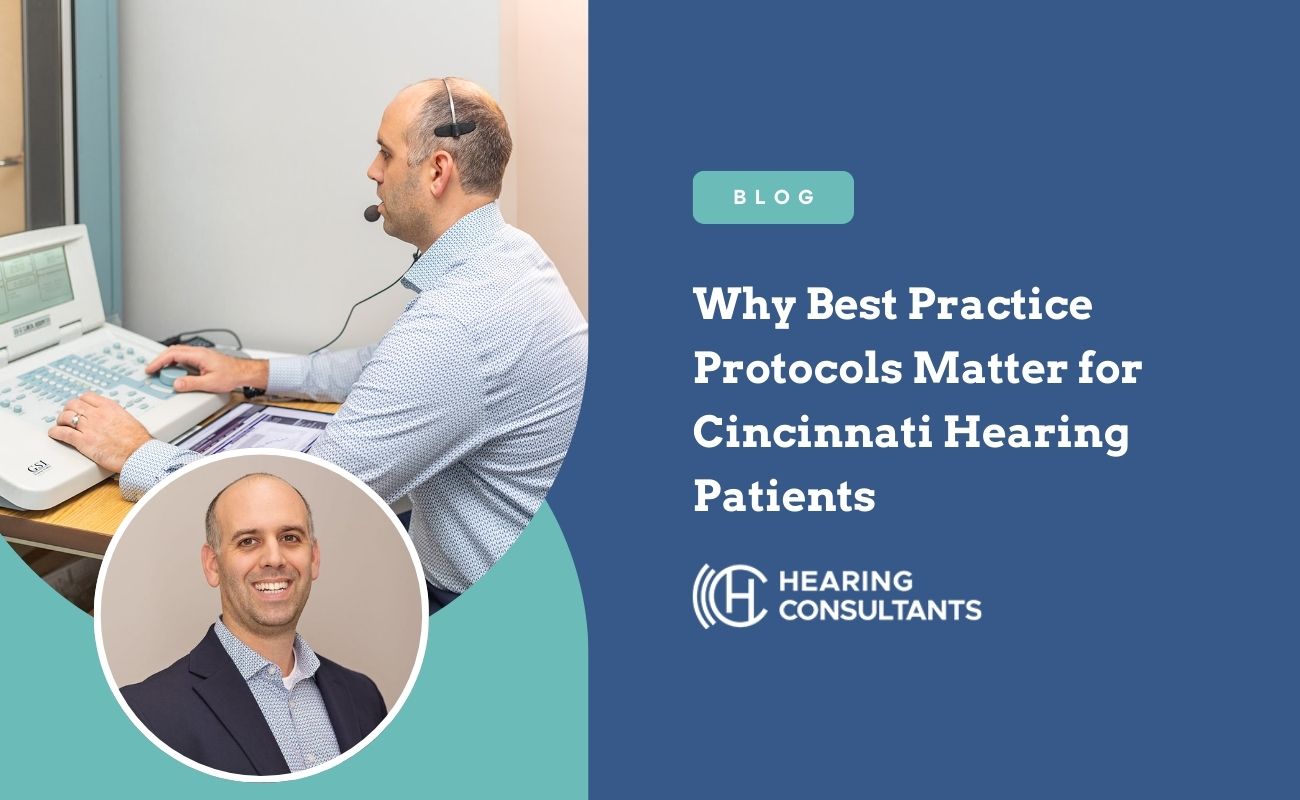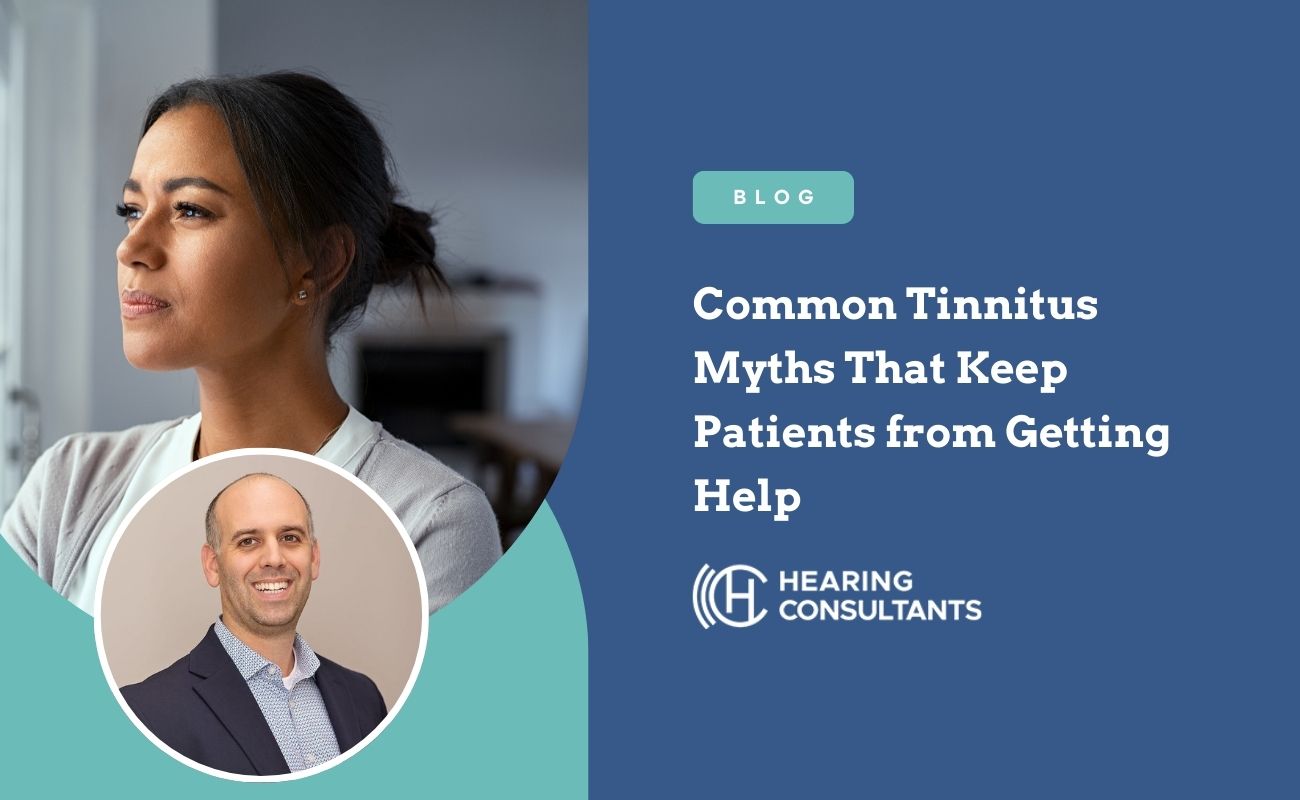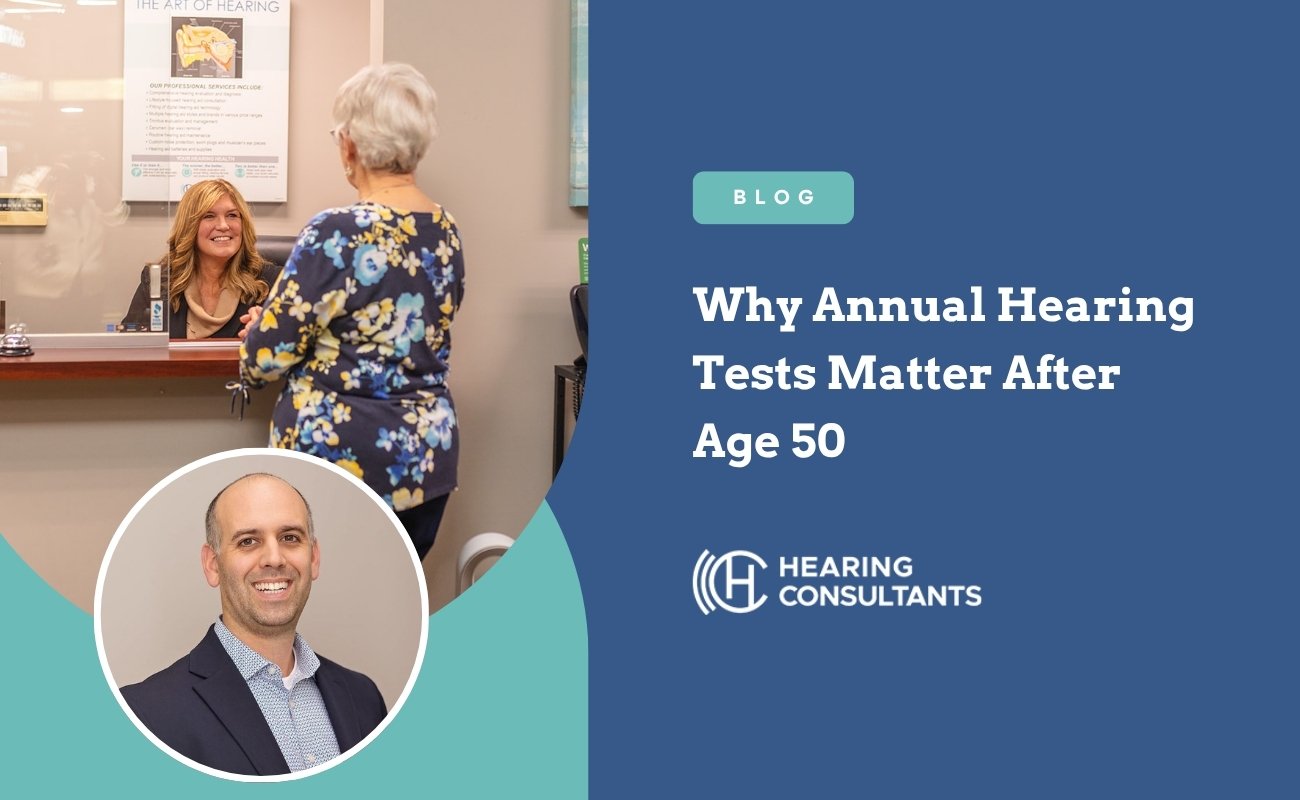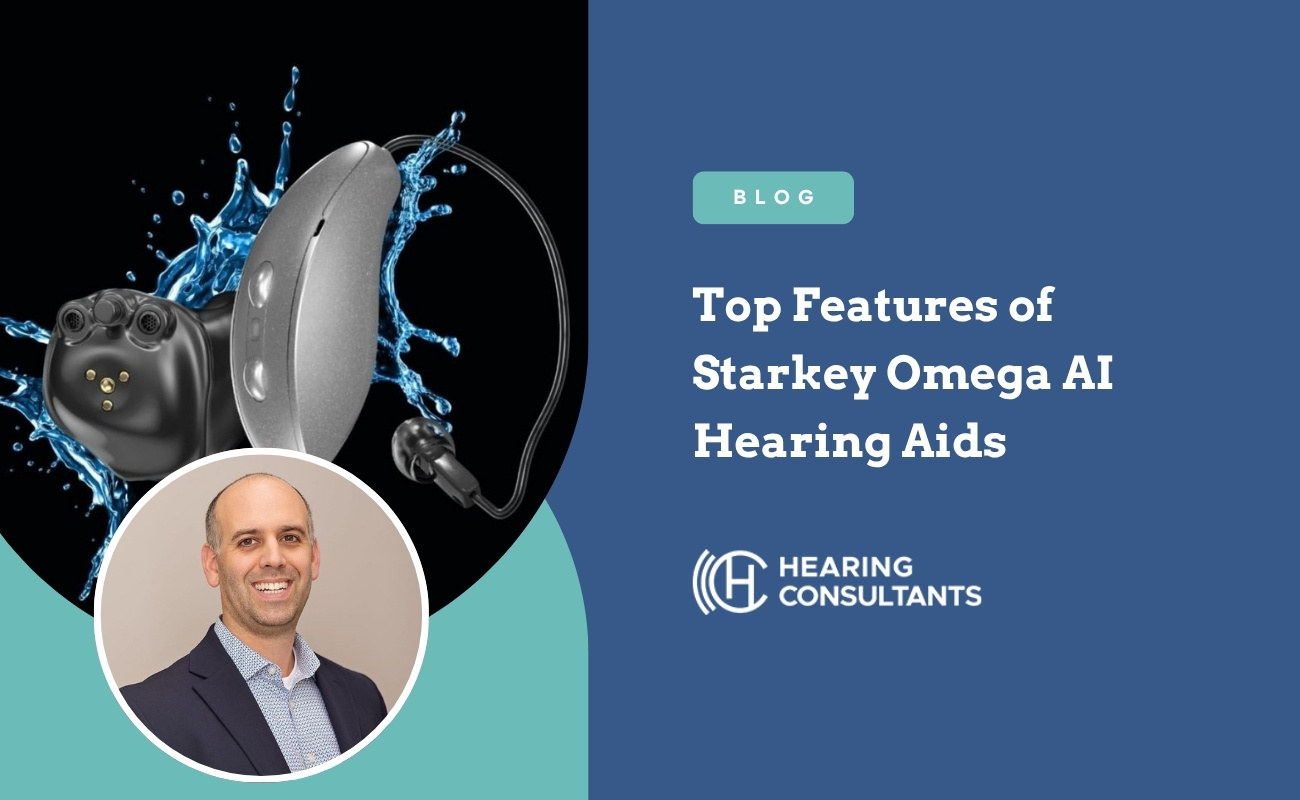The Complete Guide to Tinnitus Treatment Options in Cincinnati
.jpg)
Tinnitus affects an estimated 50 million adults across the United States, manifesting as ringing, buzzing, hissing, or other phantom sounds that only you can hear. While this condition might seem like a minor inconvenience at first, tinnitus can significantly impact your concentration, sleep quality, work performance, and personal relationships. At Hearing Consultants, we understand the frustration and distress that tinnitus brings to daily life, and we're committed to helping Cincinnati residents find effective tinnitus treatment options that restore their quality of life.
Understanding Tinnitus and Its Impact
Tinnitus presents differently for each person. Some experience a high-pitched ringing, while others perceive low roars, clicking sounds, or constant buzzing. The phantom noise can be intermittent or continuous, varying in loudness throughout the day. Most people notice tinnitus more prominently in quiet settings, which often makes falling asleep or concentrating in peaceful environments particularly challenging.
The condition falls into two main categories. Subjective tinnitus, which accounts for over 99% of cases, can only be heard by the affected individual. Pulsatile tinnitus, a rarer form, creates sounds that beat in sync with your heartbeat and may sometimes be detected by others during examination.
Common Causes Behind Tinnitus
Understanding what triggers tinnitus helps guide treatment decisions. Prolonged exposure to loud sounds remains the most frequent cause, as excessive noise permanently damages the sound-sensitive cells within the cochlea, the spiral-shaped organ in your inner ear. This damage can result from occupational noise exposure, recreational activities like concerts or hunting, or even regular use of headphones at high volumes.
Certain medications, known as ototoxic drugs, can trigger tinnitus as a side effect. These include specific antibiotics, diuretics, and antidepressants. Other medical conditions also contribute to tinnitus development, including high blood pressure, cardiovascular disease, anemia, allergies, thyroid problems, autoimmune diseases, and diabetes.
Age-related hearing loss frequently accompanies tinnitus, as the auditory system changes over time. Earwax buildup, ear infections, or physical trauma to the head or ears can also trigger tinnitus symptoms.
Professional Diagnosis and Evaluation in Cincinnati
Effective tinnitus management in Cincinnati, Ohio begins with comprehensive evaluation. Diagnosing tinnitus involves reviewing your medical history and conducting a thorough physical examination. We examine your ears using specialized equipment to identify any visible issues, such as excessive earwax or signs of infection.
A complete hearing evaluation forms the cornerstone of tinnitus assessment. Pure-tone audiometry measures your ability to hear different frequencies and volumes, while speech recognition testing evaluates how well you understand spoken words in various conditions. Bone conduction testing helps determine whether your tinnitus relates to problems in the outer, middle, or inner ear.
In some cases, additional testing may be recommended. CT or MRI scans can rule out structural abnormalities, while blood tests might identify underlying medical conditions contributing to your tinnitus.
Hearing Aids: A Primary Treatment Option
For individuals experiencing both tinnitus and hearing loss, hearing aids often provide significant relief. These devices amplify external sounds, making environmental noise more prominent and effectively masking the internal tinnitus sounds. Many people find that when they can hear external sounds more clearly, their brain focuses less on the phantom tinnitus noise.
Modern hearing aids incorporate advanced features specifically designed for tinnitus management. Some models include built-in sound generators that produce soothing tones or white noise to help mask tinnitus. Others feature sophisticated sound processing that enhances speech clarity while providing gentle background sounds that reduce tinnitus prominence.
The fitting process for hearing aids involves precise programming based on your specific hearing loss pattern and tinnitus characteristics. Real Ear Measurement, a verification procedure we use at our practice, ensures your hearing aids provide optimal amplification levels for both hearing improvement and tinnitus relief. This technology measures sound levels directly in your ear canal while wearing the hearing aids, allowing us to fine-tune the devices for maximum benefit.
Sound Therapy Approaches
Sound therapy encompasses various techniques designed to reduce tinnitus perception through acoustic stimulation. White noise generators produce consistent, gentle sounds that help mask tinnitus symptoms throughout the day. These devices can be worn like hearing aids or used as bedside units during sleep.
Environmental sound enrichment involves introducing pleasant background sounds into your daily environment. This might include nature sounds, soft music, or specialized tinnitus relief soundtracks. Many people find that having gentle background noise reduces their awareness of tinnitus, particularly in quiet settings.
Masking devices specifically target tinnitus frequencies with customized sounds designed to cover the phantom noise. Unlike simple white noise, these devices can be programmed to match your specific tinnitus pitch and volume, providing more targeted relief.
FDA-Approved Therapies
Several FDA-approved treatments offer evidence-based approaches to tinnitus management. Tinnitus retraining therapy (TRT) combines sound therapy with counseling to help your brain learn to ignore tinnitus signals. This treatment typically involves wearing special sound generators while receiving guidance on how to reduce your emotional response to tinnitus.
Neuromodulation devices represent newer FDA-approved options for tinnitus treatment in Cincinnati. These devices use electrical or magnetic stimulation to alter neural activity in brain regions associated with tinnitus perception. Some patients experience significant symptom reduction with these therapies, though results vary between individuals.
Prescription medications, while not specifically FDA-approved for tinnitus, may help manage associated symptoms like anxiety or depression that often accompany chronic tinnitus. These medications require careful evaluation and monitoring by qualified healthcare providers.
Cognitive Behavioral Therapy and Mental Health Support
Cognitive behavioral therapy (CBT) has shown effectiveness in helping people manage their emotional response to tinnitus. While we don't provide CBT services directly at our practice, we maintain relationships with qualified mental health professionals in the Cincinnati area who specialize in tinnitus-related counseling. CBT helps patients develop coping strategies, reduce anxiety about tinnitus, and improve their overall quality of life.
The psychological impact of tinnitus can be significant, leading to sleep disturbances, concentration difficulties, and mood changes. Professional counseling provides tools for managing these challenges and developing healthy responses to tinnitus symptoms.
Local Cincinnati Resources and Support
Cincinnati offers several resources for individuals managing tinnitus. The American Tinnitus Association provides educational materials, support group information, and research updates. Local support groups meet regularly in the Cincinnati area, offering opportunities to connect with others who understand the challenges of living with tinnitus.
The University of Cincinnati Medical Center and Cincinnati Children's Hospital both offer specialized audiology services that complement our care. We work closely with local ENT physicians when medical intervention might benefit tinnitus management.
Online resources include tinnitus support communities and educational platforms that provide 24/7 access to information and peer support. Many patients find comfort in connecting with others who share similar experiences.
Lifestyle Modifications and Prevention
Managing tinnitus often involves lifestyle adjustments that can reduce symptom severity. Avoiding loud noise exposure helps prevent further auditory damage that might worsen tinnitus. When noise exposure is unavoidable, custom hearing protection can preserve your remaining hearing while reducing tinnitus risk.
Stress management techniques like meditation, yoga, or regular exercise can help reduce tinnitus perception. Many patients report that their tinnitus becomes more noticeable during stressful periods, making stress reduction an important component of comprehensive management.
Sleep hygiene practices support better rest despite tinnitus. Using background sounds during sleep, maintaining consistent sleep schedules, and creating a comfortable sleep environment can improve sleep quality for people with tinnitus.
Comprehensive Tinnitus Care in Cincinnati
Effective tinnitus treatment requires personalized approaches that address each individual's specific symptoms and needs. No single treatment works for everyone, which is why we offer comprehensive evaluations to determine the most appropriate management strategies for your situation.
Our team combines advanced diagnostic techniques with evidence-based treatments to provide Cincinnati residents with effective tinnitus management options. We stay current with the latest research and treatment developments to ensure our patients receive the most effective care available.
Schedule Your Tinnitus Evaluation Today
Living with tinnitus doesn't mean accepting a reduced quality of life. Effective tinnitus treatment in Cincinnati is available, and our experienced audiologists are ready to help you find relief from your symptoms. Contact Hearing Consultants today to schedule a comprehensive tinnitus evaluation and take the first step toward better hearing health and improved daily comfort.
Get in touch with
Hearing Consultants
Contact our clinic to schedule an appointment today!







